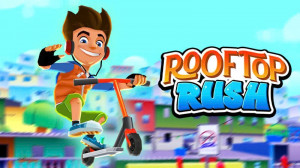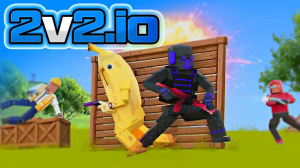Best Jump Timing Tricks to Avoid Deaths in Geometry Dash
July 01, 2025
Best Jump Timing Tricks to Avoid Deaths in Geometry Dash
Jumping may seem simple in Geometry Dash, but mastering jump timing is one of the most difficult—and rewarding—skills a player can develop. While levels start easy, the difficulty curve rises quickly. Suddenly, you’re dealing with narrow spikes, shifting gravity, and near-impossible transitions where one mistimed jump sends you all the way back to the start.

To improve your survival rate and consistency, it’s time to dig into the timing techniques that help experienced players pass tough levels without guesswork. In this guide, you’ll find the most effective jump tricks to reduce mistakes and improve your confidence in every attempt.
Practice Late Taps and Buffer Jumps
Jumping too early is one of the most common causes of death in Geometry Dash. Early taps can lead to landing on the tip of a spike or falling short of a platform. The key is to jump as late as possible—just before you fall off the edge. This technique gives your cube maximum height and distance, increasing your chances of clearing triple spikes or steep angles.
Tap-and-Hold for Buffer Timing
In tight sequences, even a split-second delay can cost your run. That’s where buffer jumps shine. When you press and hold the jump button just before landing, the game queues your input and activates it on the first valid frame. This is extremely helpful in levels like Geometry Dash Auditory Avenue, where your jump windows are razor-thin.
Adjusting Tap Duration for Control
Your jump height depends on how long you hold the button. Short taps create quick hops—useful for threading through tight blocks. Longer presses give you higher arcs, great for large gaps or elevation changes. To practice this, use Practice Mode on Geometry Dash Ultra Paracosm and test your jump height across different obstacle sets.
Use Visual Cues Over Music
While Geometry Dash is known for its music synchronization, not all levels match the beat perfectly. In harder or user-made maps, music can become misleading. Instead of relying on rhythm, watch object placements, portal transitions, and platform patterns.
Training your visual awareness ensures you react to what’s on-screen rather than relying on sound memory—which can be off in custom levels or laggy devices.
Train Without Sound for Consistency
Try turning off the music during practice to force your brain to focus only on visuals. This sharpens your awareness of patterns and obstacles. After you’ve memorized a sequence, turn the music back on to improve your overall timing flow.
Mixing visual-based training with sound-based muscle memory gives you the best of both approaches.
Learn from Official-Level Design
Studying well-balanced official levels helps you build timing intuition. Maps available on Steam are professionally structured, with clean transitions and obstacle placement that follow logical patterns. Use them to recognize spacing types and jump setups that frequently appear in custom levels too.
Final Thoughts
Improving jump timing is about more than fast reactions—it’s about strategy and rhythm awareness. With techniques like buffer inputs, tap duration control, and visual training, you can drastically reduce deaths and push further through challenging levels.
Use Practice Mode, experiment with pressure control, and always watch—not just listen. These small tweaks make a big difference between restarting and reaching the finish line.
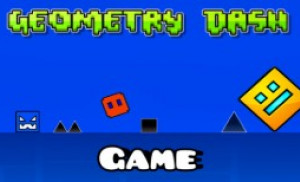
August 23, 2025
Geometry Dash vs Geometry Dash Lite: What’s the Difference
Curious about the difference between Geometry Dash and Geometry Dash Lite? Discover how the free version stacks up against the full game, including levels, features

June 24, 2025
Best Control Setup for Serious Geometry Dash Players
Looking to improve in Geometry Dash? Discover the best control setup for PC and mobile, with expert tips to reduce input lag, boost consistency, and play like a pro.
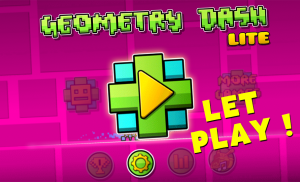
July 23, 2025
How to Safely Get Geometry Dash on PC for Free
Looking to play Geometry Dash on PC for free? Discover safe browser-based alternatives, why to avoid sketchy downloads, and how to enjoy the game without risking your system.
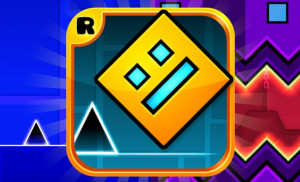
July 28, 2025
How to Get the Full Version of Geometry Dash for Free — Truth & Safe Options
Looking for a free way to play Geometry Dash? Learn how to explore the game legally with free versions and safe browser alternatives—without risking your device or breaking the rules.

August 15, 2025
The Ultimate 2025 Geometry Dash Guide: From Beginner to Demon-Level P
Master Geometry Dash in 2025 with pro tips, music sync tricks, and Demon-level strategies using maps like Icy Dash, Dunk Dash, and Dashmetry.

June 23, 2025
Essential Tips Every Geometry Dash Player Should Know
Geometry Dash is a high-speed rhythm-based platformer that challenges players to jump, fly, and flip through dangerous passages and spiky obstacles—all perfectly timed to energetic music.

September 27, 2025
How to Get Diamonds in Geometry Dash
Learn how to collect diamonds in Geometry Dash with simple tricks, daily quests, and small adjustments that make the grind smoother.
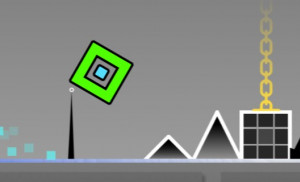
September 12, 2025
Secrets to Survive Triple Spikes Every Time
Struggling with triple spikes in Geometry Dash? Learn timing tricks, rhythm hacks, and practice tips to survive them every time.

September 06, 2025
How to Download Geometry Dash
Discover how to download Geometry Dash safely on mobile or PC. Learn the best platforms to use, avoid risky sites, and start playing today.

July 07, 2025
How to Master Double and Triple Spike Jumps
Struggling with double and triple spikes in Geometry Dash? Learn edge-jump timing, buffer techniques, and smart practice strategies to beat these jumps consistently and confidently.

August 09, 2025
How to Get the Master Emblem in Geometry Dash
Learn how to earn the Master Emblem in Geometry Dash with tips on beating hard levels, collecting orbs, and mastering achievements.
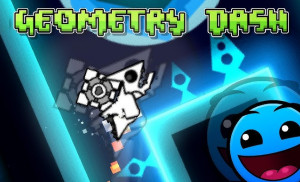
July 17, 2025
The Most Addictive Geometry Dash Levels (And Why You Keep Coming Back)
Certain Geometry Dash levels are hard to quit. Learn why some stages become instant favorites, and why you keep coming back for just one more run.
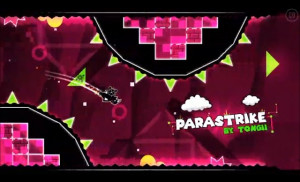
June 23, 2025
How to Train Your Reflexes for Geometry Dash
Train your reflexes for Geometry Dash with expert tips on Practice Mode, rhythm syncing, reaction drills, and mental focus. Improve timing and gameplay now!
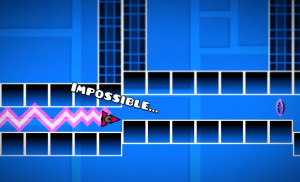
June 23, 2025
5 Mistakes Beginners Make in Geometry Dash (And How to Avoid Them)
New to Geometry Dash? Discover 5 beginner mistakes you should avoid—plus actionable tips to improve faster with rhythm, timing, and smart practice.

August 15, 2025
Habits That Make You Better at Geometry Dash Without You Even Noticing
Small habits in Geometry Dash—timing jumps, staying calm, bouncing back—add up over time, turning tough levels into easy warm-ups
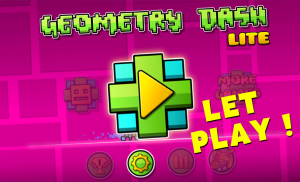
July 02, 2025
Hidden Tricks in Official Geometry Dash Levels
Think Geometry Dash is all about reflexes? Discover hidden tricks in official levels—like skippable pads, fake spikes, and secret routes—to outsmart the game and improve faster.

July 10, 2025
Most Common Beginner Traps in Geometry Dash (And How to Avoid Them)
New to Geometry Dash? Discover the most common beginner traps—like overjumping and misleading portals—and learn how to avoid them with smart habits and high-level strategy.

August 29, 2025
Geometry Dash: How to Beat Levels Without Practice Mod
Struggling to clear Geometry Dash without practice mode? Learn simple tricks, timing strategies, and focus tips to beat tough levels.

September 19, 2025
Geometry Dash: Small Adjustments That Make a Big Difference
Discover small tweaks in Geometry Dash that improve timing, rhythm, and consistency, helping you beat tough levels with less frustration.
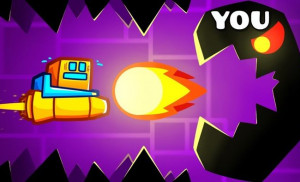
June 24, 2025
Geometry Dash: The Secret to Beating Hard Levels Consistently
Struggling with tough Geometry Dash levels? Learn how to beat hard stages consistently with expert techniques: section training, setup tips, mental focus, and official game insights.

